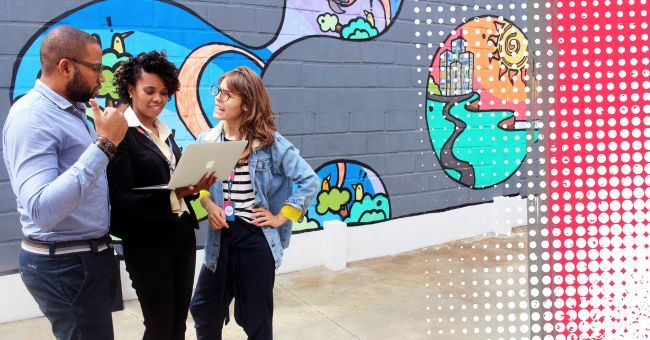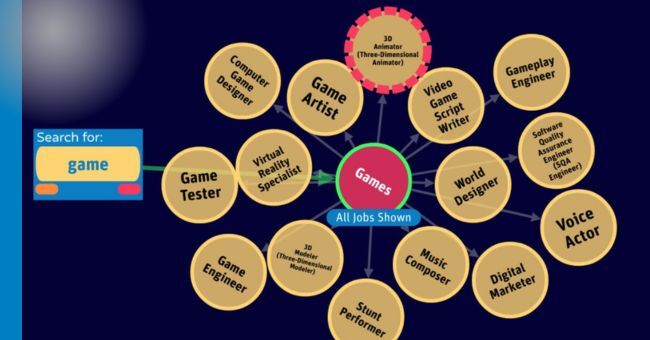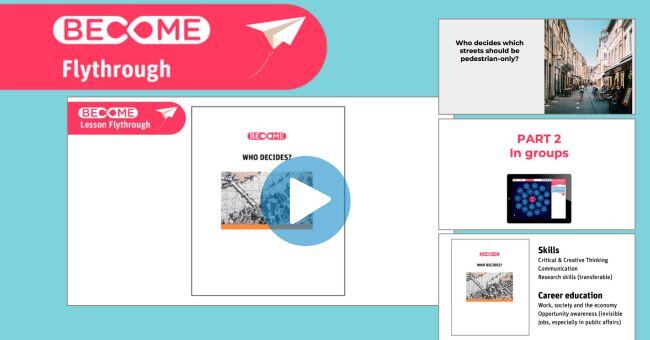Becoming an Englishian
If you're good at Maths, you could aspire to become a mathematician. If you enjoy History, why not become a historian! If you're good at English,...

There's so much going on at school.
Teaching knowledge and understanding, learning skills for study, life and wellbeing.
Some - but not all - of it is captured in our frameworks and curricula. Much important learning goes into the big pot of a student's lived experience. That experience is a large part of what young people draw on when they leave school and start out in life.
It can be easy to pop 'careers' into a handy box for a specific time and year level, under the eye of a trained pro - a Career Guidance Counsellor, Careers Leader or similar.
But all teachers have a monumental impact on how students' aspirations emerge.
Everyone who contributes to the learning community at school plays a part in shaping how and where a young person thinks they might find a place to fit in the world.
 A student presents their project on the pros and cons of being a police officer
A student presents their project on the pros and cons of being a police officer
From an early age, what students see and hear about adult life, what is valued and what is ignored, and where they are supported to explore career ideas openly -- these everyday experiences shape how they see their career potential and what their future life might be.
As we launch our new short course for ALL teachers on their incredible capability in shaping the future, let's look at FIVE key ways all teachers across all learning areas have the power to shape what students believe is possible for their future.
Feedback to learners - on a really basic level - informs each person about their aptitude in that area: 'I am good at presentations.'
Feedback in subjects determines what types of careers students rule out as impossible or irrelevant aspirations: 'I wanted to be a psychologist but I could never handle the statistics.'
To continue the example above, maybe that student could aim for psychology if we have the chance to discuss their aspiration early enough that we, teacher and student can work on their maths together.
And even for those students who don't have a clear goal, teachers model what investment in learning might lead to - which is point number three ...
Teachers generally know and love their subject best. Certain learning areas on the curriculum light a spark for each of us regardless of whether we are a specialist or this is Primary or Secondary. 
Teachers do not need to know every single career that links to their favourite learning areas -- but they do hear about careers that are interesting or unexpected in the ways they link to learning areas.
This knowledge is there in so many things teachers already do - in projects and units, in themes they explore. For example, if you link a topic to the UN SDGs, you are talking about the big ways people choose to be and work together to shape the world, and that is all about careers and futures.
So all teachers can (and do) bring students' attention to careers that use the subject matter and skills they are teaching.
Even better if these careers are ones students would NEVER expect would use that subject. Statistics in sport. History in law and policy. Creative thinking in IT. Geography in ecology. What careers are linked to a subject that would surprise your students?
It's like they are constantly shopping for ideas, looking for a place they could fit in the world. Because they are!
When a student says, 'Do you think I would be good as a [insert career here]?' - they are talking about careers and picking up your feedback clues. What and how you respond is important.
This is the kicker. If the purpose of education - which is why many of us started in this field - is helping people learn and grow, then curiosity, raw, enthusiastic curiosity about where people USE that learning is one of the most powerful ways of putting the why into what you're teaching. We realise you know this. But look at it through the lens of career exploration:
This dynamic microcredential course exists to provide a concise overview of how and when teachers support student aspirations for the future. The course makes it easier to know what's effective (and why), when to intervene (or not), what helps build curiosity about careers and why that is so important for students of all ages across all demographics.
Here's a short video of what to expect from Heart of the Future: The power of all teachers in student aspirations

If you're good at Maths, you could aspire to become a mathematician. If you enjoy History, why not become a historian! If you're good at English,...

Let's look at the second new feature BECOME has released for schools this month! The new Lesson Flythroughs are a super-quick way for BECOME teachers...

First published in the Sydney Morning Herald, June 10, 2023. Narrowing down our options is probably the most common approach to decision-making. Its...